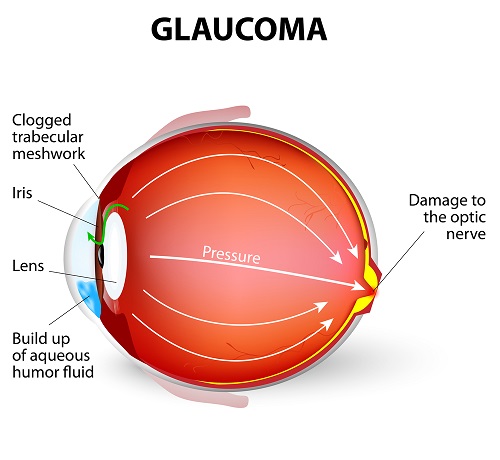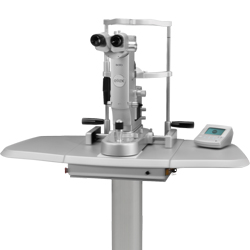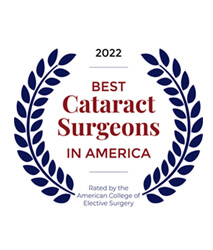 Our vision is arguably one of the most important aspects of our life. So why is it that so many people skip their yearly or bi-yearly eye examination? It could be because you’re busy and simply don’t have time, or that you’re afraid of the doctor. Either way, it is important to understand that there are many eye diseases that show no symptoms until permanent damage is done. One of these common eye diseases is called glaucoma.
Our vision is arguably one of the most important aspects of our life. So why is it that so many people skip their yearly or bi-yearly eye examination? It could be because you’re busy and simply don’t have time, or that you’re afraid of the doctor. Either way, it is important to understand that there are many eye diseases that show no symptoms until permanent damage is done. One of these common eye diseases is called glaucoma.
Glaucoma progresses slowly, and usually, has no early symptoms. It is a complicated disease that can rob you of your vision gradually. Comprehensive eye examinations are the key to preventing glaucoma-related vision loss. While there is no cure, early glaucoma detection and treatment can minimize glaucoma-related vision loss. Each year, Eye Consultants of Texas successfully diagnoses and treats glaucoma patients from all across the Dallas-Fort Worth Metroplex.
What Causes Glaucoma?
Generally, glaucoma occurs when the fluid that nourishes the front of the eye isn’t draining properly. The fluid then builds up, putting pressure on the eye and causing damage to the optic nerve – the nerve that connects the retina to the brain. If high eye pressure is left untreated, optic nerve damage is irreversible and can lead to blindness.

Types of Glaucoma
There are many different types of glaucoma that fall into two main categories. Open-angle glaucoma is the most common. This occurs when fluid doesn’t flow properly through the trabecular meshwork (the drainage system of the eye). Angle-closure glaucoma is caused when the iris physically blocks the trabecular meshwork. Angle-closure glaucoma typically has symptoms such as headache, severe eye pain, nausea and vomiting, blurry vision and excessive tearing. If you are experiencing any of these symptoms, seek medical attention immediately.
Glaucoma Testing
Our testing and evaluations are among the most comprehensive in the DFW Metroplex. And our doctors spend the necessary time to ensure your severity and risks – from age, family history and ethnicity, to eye health, overall health and other factors. Depending on your condition, treatment can range from simple eye drops to surgery.
Glaucoma Treatment
Glaucoma treatment ranges from simple eye drops and medications to surgery. Whatever we prescribe at Eye Consultants of Texas is to most effectively slow glaucoma progression and minimize vision loss. We offer the following glaucoma treatments that may be prescribed, individually or together, depending on glaucoma severity:
Glaucoma Eye Drops
Glaucoma eye drops are typically prescribed as the first-line treatment. There are different types of glaucoma eye drops that serve a specific purpose. Some may be prescribed to increase fluid outflow and reduce pressure in the eye. Others are designed to reduce fluid production and eye pressure. The type of glaucoma eye drops we prescribe depends on your specific condition.
 Selective Laser Trabeculoplasty (SLT)
Selective Laser Trabeculoplasty (SLT)
SLT is a laser procedure designed to reduce eye pressure caused by glaucoma. It is typically recommended if an eye drop treatment regimen is ineffective or hard to follow. Performed in our office, the procedure usually takes less than 10 minutes, and there is rarely discomfort. With an SLT procedure, the laser makes tiny burns in the trabecular meshwork. This is to stimulate the flow of aqueous fluid through the drainage channel. SLT can be used in combination with eye drops. It can also reduce the amount of glaucoma medications you may need. As with any surgery, there are risks, which your doctor will discuss in detail.
Minimally Invasive Glaucoma Surgery (MIGS)
The steps in a MIGS procedure involve correctly identifying the trabecular meshwork, which is seen on a gonioscopy, avoiding outward pressure and confirming proper placement of devices or instruments.
Laser Peripheral Iridotomy (LPI)
LPI is a treatment used here at Eye Consultants of Texas to prevent or treat narrow angle glaucoma. The treatment involves using a laser to make a small hole incision in the iris which helps the shape of the eye.
Glaucoma Surgery
More severe cases of glaucoma may require advanced glaucoma surgery. This is typically recommended when medications and SLT aren’t effective or have been exhausted.
One of the best ways to catch glaucoma early is a routine eye exam. If you’re over 40 and haven’t had an eye exam for some time, call our Grapevine office at 817-410-2030 to schedule an appointment. Detecting early warning signs can help protect your vision for years to come.










